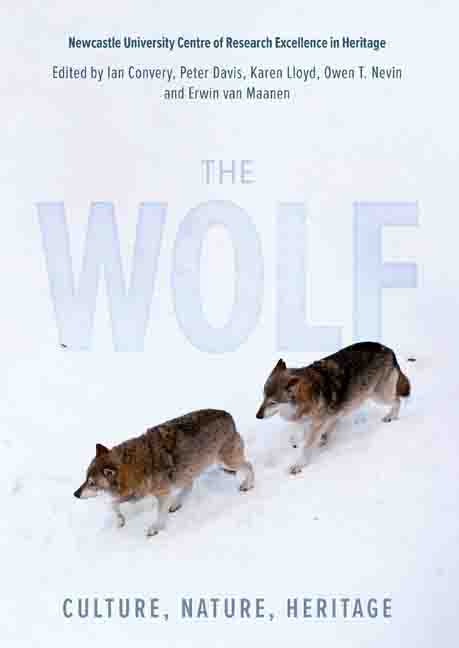Book contents
- Frontmatter
- Dedication
- Contents
- List of Illustrations
- Preface and Acknowledgments
- List of Abbreviations
- Poem: Trophic Cascade by Camille T Dungy
- Foreword
- Part I Imagining the Wolf
- Part II What Makes the Wolf
- Part III Return of the Wolf
- Part IV Personal Encounters
- Afterword: The Ecological Disadvantage of Living on an Island
- Glossary
- List of Contributors
- Index
6 - Nazi Werewolves from Outer Space: Posthuman-Wolf-Multiplicities and their (Mis)appropriations
Published online by Cambridge University Press: 10 January 2024
- Frontmatter
- Dedication
- Contents
- List of Illustrations
- Preface and Acknowledgments
- List of Abbreviations
- Poem: Trophic Cascade by Camille T Dungy
- Foreword
- Part I Imagining the Wolf
- Part II What Makes the Wolf
- Part III Return of the Wolf
- Part IV Personal Encounters
- Afterword: The Ecological Disadvantage of Living on an Island
- Glossary
- List of Contributors
- Index
Summary
This chapter focuses on the cultural manufacture of the concept wolf in a few guises, from supernatural and appropriated romantic versions to otherly ontological conceptions of wolfing as multiplicities of becoming. They are all anthropocentric in their conceptual states, but some perform more posthumanly and/or equitably than others, outside of Linnaeus's reductive and oppressive taxonomised versions. I will call these varied wolf conceptions ‘species’, to emphasise how linguistic ecological inventions can be both superficial and dangerous. There are many ‘species’ of the Western wolf: 1. A xenophobic species of werewolf, a lycanthropic virus that is making its comeback in the political world; for example, Hitler considered himself a father-wolf. 2. The glossy romanticised wolf that adorns T-shirts is a species that has misappropriated some First Nations cultures and colonised the minds of ‘nature-loving’ humans. This colonial wolf has ethical ramifications; 3. ‘Wolfing’ is becoming a niche species, making its comeback via the posthuman turn in academia and contemporary animist thought/practice – it is a multiplicity, an assemblage, a going-on, a haecceity (a thing's thisness). This chapter briefly explores each of these versions of what a wolf is, what a wolf does and what a wolf could become through an ethical and diffracted lens.
SPECIES 1: WEREWOLVES
According to Occidental history, Zeus turned Lycaon into a wolf for offering him a sacrificed boy as a meal, and Gilgamesh declined a woman's love because she had turned her ex-lover into a wolf. But there have been many therianthropic half-human, half-lupine offerings since. For example …
Nazi Werewolves from Outer Space (Sanchez 2011) is a comic. I’ve not read it and I probably never will. But the first half of the title is based on the identity politics of the Third Reich and is relevant to this chapter for a number of reasons (see Mcphie and Clarke 2015; 2018; 2021), to do with the ideologies of pure nature and/or pure race (and more recently with the connections between them due to the resurgence of eco-fascism).
- Type
- Chapter
- Information
- The WolfCulture, Nature, Heritage, pp. 69 - 82Publisher: Boydell & BrewerPrint publication year: 2023



